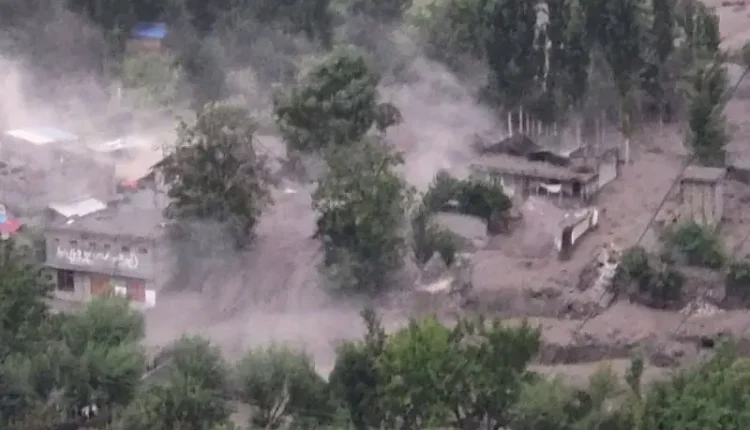
Pakistan blames India’s data failure for worsening deadly Punjab floods
905 deaths confirmed as monsoon floods devastate Punjab.
Pakistan on Friday voiced concern over the limited flood-related data shared by India, noting that the information provided this year through diplomatic channels lacked the detail of previous years.
Islamabad-(Mudassar Iqbal)-The Foreign Office said the statement came amid one of the most devastating floods in the country’s history, triggered after India opened all gates of its major dams. Islamabad pointed out that New Delhi issued alerts through diplomatic channels — including one conveyed today — instead of using the relevant Indus Waters Treaty (IWT) forum, as was done in the past.
Under the treaty, New Delhi is bound to issue alerts for flooding on three rivers which flow into Pakistan from India.
In a weekly briefing today, Foreign Office Spokesperson Shafqat Ali Khan said that India did not utilise the Indus Water Commissioner’s channel to share the information.
He urged New Delhi to fully comply with all provisions of the treaty.
For the second time in three years, catastrophic monsoon floods have carved a path of destruction across Pakistan’s north and central regions, particularly in its Punjab province, submerging villages, drowning farmland, displacing millions and killing hundreds.
Pakistan recorded 905 deaths since late June, when the monsoon season began, as per the National Disaster Management Authority (NDMA) latest statistics.
The floods swept into 1,400 villages in Punjab and led to evacuation of more than a million people.
After devastations in Punjab, torrents are heading towards Sindh which now prepares for coping with a “super flood” in riverine parts.
It is noteworthy to mention here that India had suspended its participation in the IWT with Pakistan after the killing of 26 civilians in Indian Illegally Occupied Jammu and Kashmir, which New Delhi blames on Islamabad.
Pakistan denied the charges, which led to the worst fighting between the countries in decades before a ceasefire was agreed last week.
In June, the Permanent Court of Arbitration’s Supplemental Award asserted that India has no authority to suspend the agreement unilaterally.
The unanimous judgment, delivered on June 27, 2025, and binding on both parties without appeal, confirmed that India’s unilateral decision to place the treaty in abeyance has no bearing on the Court’s competence to adjudicate the matter.
Karachi weather alert: Very heavy rains, urban flooding risk from Sept 7
The nuclear-armed neighbours disagree over the use of the water from rivers that flow downstream from India into the Indus River basin in Pakistan.
The use of the water is governed by the Indus Waters Treaty, which was mediated by the World Bank and signed by the neighbours in September 1960.
The agreement split the Indus and its tributaries between the two countries and regulated water sharing. India was granted the use of water from three eastern rivers — Sutlej, Beas and Ravi — while Pakistan was granted most of the three western rivers — Indus, Jhelum and Chenab.
There is no provision in the treaty for either country to unilaterally suspend or terminate the pact, which has clear dispute resolution systems.





Comments are closed, but trackbacks and pingbacks are open.